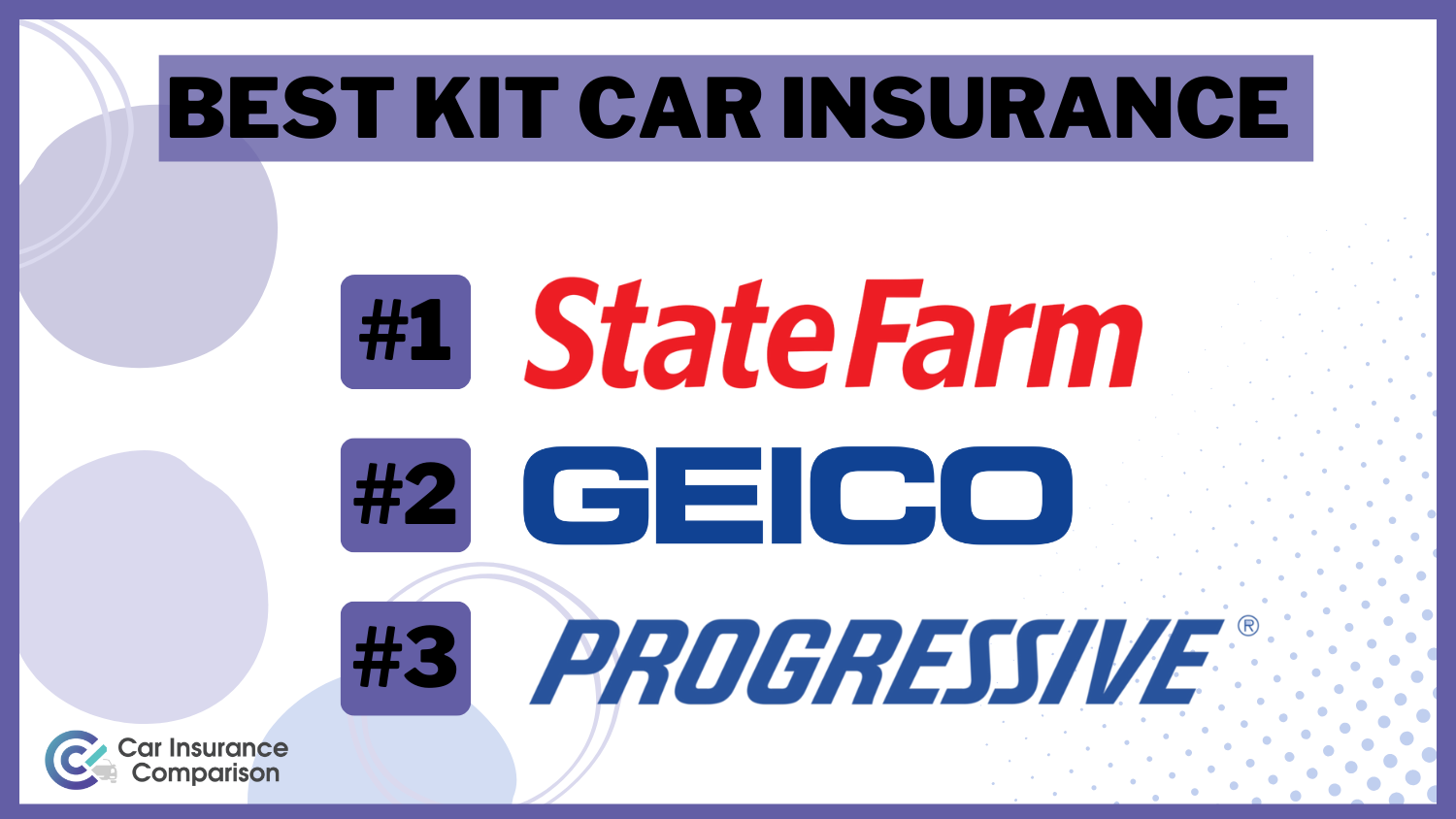Is car insurance paid monthly?
Most people pay their car insurance annually or every six months, especially with the incentive of a pay-in-full discount of 5-15%. But what if you need another payment option? Is car insurance paid monthly? Yes, it can be. Our experts detail the pros and cons of a month-to-month car insurance payment plan.
Read more Secured with SHA-256 Encryption





Table of Contents
Table of Contents


Published Insurance Expert
Melanie Musson is the fourth generation in her family to work in the insurance industry. She grew up with insurance talk as part of her everyday conversation and has studied to gain an in-depth knowledge of state-specific insurance laws and dynamics as well as a broad understanding of how insurance fits into every person’s life, from budgets to coverage levels. Through her years working in th...
Melanie Musson


Licensed Insurance Agent
Daniel Walker graduated with a BS in Administrative Management in 2005 and has run his family’s insurance agency, FCI Agency, for over 15 years (BBB A+). He is licensed as an insurance agent to write property and casualty insurance, including home, life, auto, umbrella, and dwelling fire insurance. He’s also been featured on sites like Reviews.com and Safeco. To ensure our content is accura...
Daniel Walker
Updated November 2024
Almost every state requires drivers to buy auto insurance, but you might be curious about your payment options. Unlike most bills, you must pay your car insurance upfront to guarantee coverage.
You may wonder, “Is car insurance paid monthly?” Most drivers choose to settle their bills monthly, but your insurer likely provides additional options. This article explains how insurance payments work, whether it’s better to pay upfront or in installments, and what could happen if you miss your due date.
- All insurance is prepaid, which means you have to pay at least one month in advance to maintain coverage
- Most companies allow you to pay monthly, semi-annually, or annually for your auto insurance
- If you cancel your policy, your insurer should issue a refund of the unused portion
Is car insurance paid monthly?
Do you have to pay car insurance every month? When purchasing a new car insurance policy, your coverage doesn’t begin until you pay at least one month in advance. After that, each payment covers the following month of coverage. Insurers use this amount to help cover the cost of any claim you might file.
For your policy to be valid, you must submit your payment before your coverage goes into effect. An insurer should allow you to settle the total amount or the first month’s bill to activate your coverage. Even if you pay your bill each month, you might need an initial deposit for a new policy.
Do you have to make a down payment for auto insurance?
Insurance companies often require a one-time down payment for new customers, which only applies when purchasing a new policy. Unless you develop a habit of missing or late payments, you shouldn’t have to pay a deposit when renewing your coverage.
If you have poor credit, prior lapses in coverage, or a history of late or missed payments, it can increase your chances of needing to pay a deposit. Your down payment can vary based on any of these factors but is generally between 25% and 50% of the total cost of your policy. (For more information, read our “Do you get your deposit back from car insurance?“).
When shopping for car insurance quotes, it helps to ask the company what you need to do to get your coverage started.
Read more:
Is it better to pay car insurance monthly or yearly?
Companies use a prepaid billing model, and you have different options for how often you pay, depending on your insurance company. While monthly payments are the most common, you can also settle your insurance once or twice a year by paying a larger sum.
Perhaps you are trying to decide which installment plan works for your situation. Payment options might depend on your insurance company, your household budget, and the terms of your policy. Each option has benefits and drawbacks that can help you decide which is the right choice for you.
Pros and Cons of Paying Auto Insurance Monthly
Is car insurance paid every month? Paying your insurance every month is a popular option, especially if you have a fixed income or a tight budget. Monthly payments offer flexibility and allow you to break down a substantial lump sum into more manageable portions.
Installment plans give you a set amount due at the same time each month, which can help you pay on time. It’s also easier to set up automatic withdrawals, so you never have to worry about missing a payment.
A disadvantage of paying your car insurance premium on a monthly basis is that, in the end, it costs you more than if you paid on an annual basis. The insurance company will often charge you more in administrative fees when you decide to pay more frequently.
Another disadvantage of paying monthly is that you have to remember to pay your bill on time every month. If you have a busy life, paying the bill may get away from you. If you pay it late, you probably will incur late fees which add up in the end.
Read more: Compare Monthly Car Insurance: Rates, Discounts, & Requirements
Free Insurance Comparison
Compare Quotes From Top Companies and Save
Secured with SHA-256 Encryption
Pros and Cons of Paying Car Insurance in Full
What does it mean when your auto insurance policy is paid in full? When paying for your car insurance up front, your payments might be annual or semi-annual based on your policy. Insurance companies write policies for six-month or year-long terms, and paying in full is a convenient option that gives you valuable peace of mind. (For more information, read our “Can you pay your car insurance yearly?“).
If you can afford the upfront cost, paying for your entire policy in advance could offer additional benefits. Do you get a discount for paying car insurance in full? Yes, many companies offer discounts for paying in full, allowing you to take advantage of added savings.
Read more: Car Insurance Discounts: Compare the Best Discounts
While convenient and cost-effective, this payment option isn’t for everyone. You should consider other options if you can’t manage a sizable annual or semi-annual payment.
A significant disadvantage for a lot of people in regards to paying car insurance on an annual basis is that they need to come up with a large sum of money at one time. For some people, this amount of money is not an issue, but for those who live paycheck to paycheck, this lump sum is difficult.
If possible, you should try to estimate your payment with our car insurance calculator ahead of time and ensure you have the money in the bank to cover it.
Another disadvantage to paying on an annual basis is that if you choose to switch to a different insurance company during that year, it can be a pain. Although insurance companies will usually refund your money, it can take them a month or two to get the check to you, which may affect you financially.
Why don’t all companies charge the same for monthly car insurance payments?
Insurance companies are not compelled by law to provide a specific monthly payment plan at a specific cost. Therefore, they take some things into consideration when they decide to offer monthly payment plans.
First, statistics prove that those with lower credit ratings tend to have more accidents or violations on their driving records. It’s assumed that those who need monthly payment options will be on the lower end of the economic scale and therefore, a higher risk to the insurance company.
Likewise, those who pay their premiums in full and upfront are deemed to be higher on the economic scale and get the best rates.
Second, when the car insurance company accepts monthly payments, it has less money to invest as a means of protection against a possible car insurance claim by the driver. This higher risk of financial loss is passed along to the consumer in higher monthly payments.
Finally, administering monthly payments requires a larger account receivable staff and more collection services. All of these things add up to increased costs that are passed on to you.
Are there car insurance companies that specialize in monthly payment plans?
In most major cities there are car insurance companies who specialize in monthly payment plans. Generally, these insurance companies are simply agencies rather than underwriters, making their money by selling insurance policies for larger providers.
You will generally pay less for your car insurance if you pay in full. But if you need to pay monthly, check AAA, Geico, State Farm, and USAA for the best monthly rates.
Justin Wright Licensed Insurance Agent
These companies tend to specialize in high-risk drivers as well, which makes monthly payment plans almost a necessity. Unfortunately, their rates can be significantly higher.
On the positive side such insurance companies often don’t require a substantial down payment except in extraordinary circumstances. If you can manage $100 or so a month, you should be able to put your car on the road.
Read more: Best High-Risk Car Insurance
Free Insurance Comparison
Compare Quotes From Top Companies and Save
Secured with SHA-256 Encryption
Are there any car insurance companies whose monthly payment plans are better than others?
Like any product or service we buy, there will always be some companies we think are better than others. It’s up to the individual consumer to know what he’s looking for and what he would consider a good payment plan.
But as a general rule, just remember not to focus completely on the monthly premium.
First, you want to make sure you find a policy that provides you with the appropriate type and amount of coverage. What good will it do you to find the cheapest monthly payment option if the policy doesn’t pay the full value of your vehicle in case it’s totaled?
By the same token, perhaps your bank or other financial institution requires a certain level of coverage not provided by the cheapest plan.
Second, you’ll also need to consider customer service and support. Some insurance companies that offer to let you pay monthly for car insurance are also notorious for poor customer service.
Read more: Where to Find Car Insurance Company Reviews
In some cases, although not always, these companies know they have high-risk drivers with few choices, so they don’t go the extra mile to make sure they have five-star service. An internet search for customer reviews is usually a big help here.
Finally, think of car insurance with monthly payments as a temporary thing. The sooner you can solve whatever financial issues have put you in this position to begin with, the sooner you can get lower monthly premiums and preferential treatment.
What happens if you make a late monthly payment?
Paying car insurance on time can help prevent serious repercussions:
- Lapsed coverage: When you miss a payment, you could lose your coverage until you pay the outstanding bill.
- Increased rates: If you pay your insurance late, your insurer could charge you more when it’s time to renew.
- Canceled policies: When you have frequent missed or late payments, your insurance company might decide to cancel your coverage.
- Suspended license: If you are in a traffic incident during a lapse in insurance, you could pay a fine or temporarily lose your driver’s license.
Avoid these consequences by paying your insurance bill on or before its due date. Always notify your insurer if you think you could be late making your payment so they can inform you of your available options.
Read more: What happens after a late insurance payment?
Understanding AAA Auto Insurance Payment Options and Fees
Navigating your AAA auto insurance payments involves more than just choosing between monthly, semi-annual, or annual payments. It’s about understanding the flexibility, convenience, and potential fees associated with each option. Here’s a comprehensive guide to help you make informed decisions when managing your AAA car insurance payments.
Managing AAA Auto Insurance Payments
When navigating AAA auto insurance payments, understanding the available options is crucial for maintaining coverage without interruptions. AAA provides flexibility with payment frequencies, allowing policyholders to choose between monthly, semi-annual, or annual payments. Opting for monthly payments can be convenient for those seeking to manage their budget more fluidly throughout the year. However, it’s important to note that this flexibility may come with an installment payment fee, which varies based on the policy and location. It’s advisable to check AAA’s terms and conditions regarding these fees to make informed decisions about payment plans that best suit your financial situation.
Ensuring Timely AAA Car Insurance Payments
To ensure continuous coverage, it’s essential to stay up-to-date with AAA car insurance bill payments. AAA offers multiple convenient methods for bill payment, including online payment portals and automatic bank withdrawals. These options streamline the payment process, reducing the risk of missed payments and potential coverage lapses. Whether you choose to pay monthly, semi-annually, or annually, setting up automatic payments can help maintain consistency in meeting payment deadlines and avoiding late fees. For policyholders preferring traditional methods, AAA also facilitates mail-in payments, ensuring accessibility and convenience across different payment preferences.
Understanding AAA Installment Payment Fees
When opting for AAA installment payment fees, it’s important to factor in potential installment payment fees. These fees, which can apply to monthly payment schedules, may vary depending on factors such as policy specifics and geographic location. Policyholders can benefit from reviewing AAA’s detailed fee structure to assess the financial implications of installment payments versus lump-sum payments. By understanding these fees upfront, you can make informed decisions about the most cost-effective payment plan while ensuring continuous coverage under your AAA auto insurance policy.
By understanding AAA’s diverse payment options and the potential installment payment fees, you can choose a plan that fits your budget and ensures uninterrupted coverage. Whether you opt for monthly installments or prefer the simplicity of semi-annual or annual payments, AAA provides flexible solutions to meet your financial needs. Remember to review AAA’s payment terms and methods to streamline your payment process and maintain peace of mind knowing your auto insurance coverage is secure.
Navigating Flexible Insurance Payments: Farmer’s, Fiesta Auto, and Financial Aid
Managing insurance payments efficiently can significantly impact your budget. Farmer’s Insurance, Fiesta Auto Insurance, and available financial aid options offer diverse solutions. Discover how these providers accommodate various needs with flexible payment plans and potential financial assistance, ensuring you can maintain essential coverage without unnecessary financial strain.
Farmer’s Insurance Payment Plans
Understanding Farmer’s Insurance payment plans is crucial for policyholders looking to manage their insurance costs effectively. Farmer’s Insurance offers various payment options to accommodate different financial situations. Policyholders can typically choose between paying their premiums annually, semi-annually, quarterly, or monthly. Each option may have different implications, such as installment fees for monthly payments or potential discounts for annual payments. Reviewing these payment plans helps ensure that policyholders can align their insurance payments with their budgetary needs and preferences.
Fiesta Auto Insurance Payment Methods
Fiesta Auto Insurance provides flexible payment methods to cater to the diverse needs of its customers. Policyholders can typically make payments through several convenient channels, including online payments through the Fiesta Auto Insurance website or mobile app, in-person payments at local Fiesta Auto Insurance offices, or by phone. Understanding these payment methods allows policyholders to choose the most convenient and secure option for managing their insurance premiums. It’s advisable to check if there are any associated fees or processing times with each payment method to make informed decisions and ensure timely payments to maintain continuous coverage.
Financial Aid for Car Insurance
Financial aid for car insurance may be available through various channels to assist policyholders facing financial difficulties. Some insurance companies offer flexible payment plans, including installment options or deferred payment arrangements during challenging times. Additionally, certain state or federal programs may provide financial assistance or subsidies for low-income individuals to help cover car insurance costs. Exploring these options can provide relief for policyholders experiencing temporary financial strain, ensuring they can maintain essential insurance coverage without undue hardship. It’s advisable to contact insurance providers directly or research available assistance programs to determine eligibility and application procedures
Exploring Specialized Auto Insurance Programs
Auto insurance companies offer specialized programs to cater to diverse customer needs, including assistance programs, specific requirements for down payments, coverage for high-risk drivers, and policies tailored for seniors. These programs are designed to provide customized solutions that address unique circumstances and ensure adequate coverage for different demographics and risk profiles.
Auto Insurance Assistance Programs: Some insurers offer assistance programs designed to help policyholders facing financial hardships. These programs may include flexible payment options, discounts, or financial assistance for qualifying individuals. Understanding these programs can be crucial for those needing extra support to maintain their auto insurance coverage during challenging times.
Auto Insurance Down Payment Requirements: Auto insurance policies often require an initial down payment, especially for new policies or high-risk drivers. The amount of the down payment can vary based on factors such as the policyholder’s driving history, credit score, and the insurer’s policies. Knowing these requirements upfront allows potential policyholders to budget accordingly and avoid surprises when securing coverage.
Auto Insurance for High-Risk Drivers and Seniors: High-risk drivers, such as those with a history of accidents or traffic violations, may face higher premiums or specialized insurance options tailored to their risk profile. Similarly, benefits of paying car insurance in full policies that consider age-related factors and offer discounts or specialized coverage options. Understanding these specialized insurance offerings ensures that drivers in these categories can find suitable coverage that meets their unique needs and provides adequate protection on the road.
Navigating these specialized auto insurance programs requires understanding the specific requirements, benefits, and potential costs associated with each option. By researching and comparing offerings from different insurers, drivers can make informed decisions that align with their financial circumstances and coverage needs.
Can you get a refund if you cancel your insurance after paying your monthly bill in advance?
If you consider canceling your policy prematurely, your company should issue you a refund of the unused portion of your policy, although they might charge a cancellation fee.
Insurers calculate refunds as a prorated amount based on the number of days remaining on your policy. Be prepared by knowing which steps you need to take to cancel your coverage, and make sure to find out how much your insurer charges for policy cancellation.
Read more: How to Cancel Car Insurance: Step-by-Step
Free Insurance Comparison
Compare Quotes From Top Companies and Save
Secured with SHA-256 Encryption
Case Studies: Exploring Payment Options in Car Insurance
Case Study 1: Monthly Payments vs. Annual Payments
John, a budget-conscious driver, chooses to pay his car insurance monthly. This allows him to manage his expenses more effectively. However, he misses a payment deadline, resulting in a lapse of coverage and a penalty fee.
Case Study 2: Late Payment Consequences
Sarah, a busy professional, forgets to pay her car insurance bill on time. As a result, her coverage is temporarily suspended, and she faces higher premiums when reinstating her policy. Timely payments are crucial to maintaining uninterrupted coverage.
Case Study 3: Refunds and Policy Cancellations
Mark decides to cancel his car insurance policy after paying his monthly bill in advance. He receives a prorated refund for the remaining unused coverage, but there is a small cancellation fee deducted from the refund amount.
Final Thoughts on Paying Upfront for Car Insurance
You must purchase auto insurance if you own and operate a motor vehicle in almost any state. Your insurer may allow for monthly, semi-annual, or annual payment plans.
Now that you know the answer to “Is car insurance paid monthly?” it’s also worth knowing how your insurer bills for coverage and which payment options are available. Regardless of whether you pay your insurance every month or six months in advance, avoid late payments to keep your policy current and coverage intact.

Frequently Asked Questions
Is auto insurance paid in advance?
Auto insurance can be paid either in advance for the coverage period or through installment payments depending on the insurer’s policies and your chosen payment plan.
Do you have to pay car insurance upfront for 6 months?
Not necessarily. Some insurance companies offer the option to pay upfront for a 6-month policy term, which can sometimes come with discounts, but it’s not mandatory.
Do you pay car insurance a month in advance?
It depends on your insurance company’s billing practices. Some insurers require payment for the upcoming month’s coverage in advance, while others may allow payment closer to the start of the coverage period.
Does the car insurance deposit cover the first month?
Typically, yes. If you pay a deposit when starting a policy, it often covers the first month’s premium, but this can vary by insurance provider.
Are car insurance premiums paid monthly?
Yes, many insurers offer monthly premium payment options to spread the cost of insurance over the year.
Are insurance premiums paid in advance or in arrears?
Insurance premiums can be paid in advance for the upcoming coverage period or in arrears, depending on the insurer’s billing cycle and your chosen payment plan.
Can I get an extension on my car insurance payment?
Some insurers may offer extensions or grace periods for payments, but policies vary. It’s best to contact your insurer directly to discuss options if you need an extension.
Can I get car insurance and pay later?
Some insurers may offer deferred payment plans where you can start coverage immediately and pay the premium later, but this depends on the insurer’s policies and your eligibility.
Can I get car insurance for one month?
Yes, some insurers offer short-term policies that can be purchased for as little as one month, which can be useful for temporary needs.
Can I pay off my monthly car insurance?
Yes, if you choose to pay monthly, you can usually pay off the entire remaining balance at any time, though policies can vary, so it’s good to confirm with your insurer.
Can I pay Progressive monthly?
Can I split my car insurance payment?
Can paying car insurance build credit?
Do you have to pay upfront for insurance?
Do you pay one month ahead for car insurance?
How much does it cost to get insurance on a car?
How much is liability insurance for a car?
Is it cheaper to pay car insurance in full?
Is it cheaper to pay insurance every 6 months?
Get a FREE Quote in Minutes
Insurance rates change constantly — we help you stay ahead by making it easy to compare top options and save.








